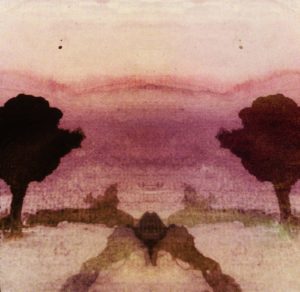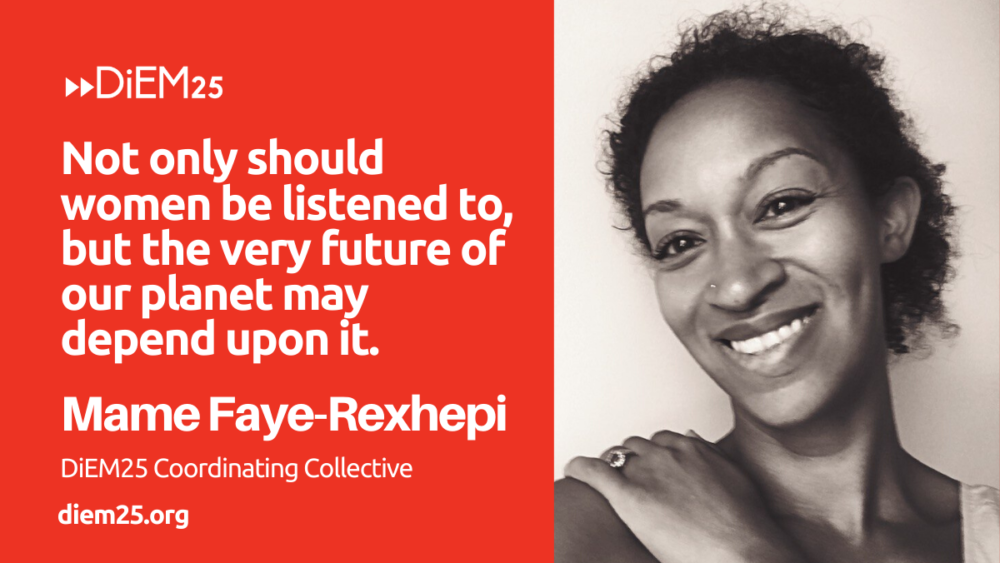DiEM25 defines itself as a feminist organisation, and like many political organisations and movements, we still have work to do in terms of including women and women’s issues into our organisation and agenda. Women have been advocates for peace in their own communities, but despite evidence of the positive impact of their participation concerning issues of peace and security, they are often excluded from participating in decision making and occupying political spaces.
We know that women and children are disproportionately affected by war. They are the ones who most often bear the brunt when it comes to armed conflict and violence in general in society. Women are not only victims of direct military action, like bombing and killing, and they are not only collateral damage; they are victims of much more covert methods of warfare. Women and children, so called ‘soft’ targets, are cowardly used in order to devastate communities, and to emasculate men, their ‘protectors’. They are weaponized as tools through which men are assaulted with and punished, individually and collectively.
Little Krusha is a village in Kosovo, which in 1999 was a part of the former Yugoslavia. During the war in Kosovo, women were forced to flee to Albania with their children. When they returned, they found their village burnt down to the ground. They had to start rebuilding their village and their lives from nothing.

‘Journey’, by Anita Faye
For a long time, women in conflict were not recognised as anything other than victims; women’s participation in political activity was not considered much more than an assistance or support for the men, those who engaged in real political activity and dissidence. However, being recognised as political participants within war or conflict also means that space for women’s political agency exists outside of conflict.
Rebuilding and healing the community after devastating acts of violence, like in Krusha, was led by women. The resilience and solidarity of these women showcases them as resilient re-constructors of communities. It counters the narrative of women as hapless victims and shows them as capable of mobilising, and being instrumental to rebuilding programmes.
Women, like other peoples from marginalised communities, are generally bestowed with the ‘dignity’ of victimhood without their consent: the media speak about them, not to them. The voices of ‘experts’, usually men and often outsiders to the community, are propped up while the victims remain invisible, or even highly visible, yet inaudible. We prefer to listen to the voices of “experts”, usually men and often outsiders to the community, while the victims remain invisible or even highly visible, yet inaudible. Transforming the narrative and allowing for proper representation to women – to portray themselves as subjects with agency — is a significant element of empowerment.
Women, especially those from marginalised or minority communities, are often excluded from decision making, planning, or having a place in designing the kind of society where armed conflict and violence can be reduced or prevented. Nevertheless, they are often agents of peace that lead community-organising after disastrous conflicts. For example, the women of Krusha created an organisation that provides support in making a living and training for widows to do the jobs that were traditionally carried out by men, like manual labour and farming.
What can we do to further promote peace and uplift the women that are agents of peace in their communities? How can we expand our understanding of violence in a way that is inclusive to the suffering of women and children? Peace does not only refer to the absence of war or conflict; it implies freedom from violence, and the presence of consent. Austerity, poverty, inequality, and discrimination are all forms of violence, which disproportionately affect those most vulnerable, women and children in particular.
Where women have seized the opportunity to lead, they have accomplished incredible feats on behalf of themselves and their communities.
By combining women’s grassroots action and international solidarity, we can amplify their voices. In this way, we intend to bring more diverse voices to the forefront, so that we can eventually push them into those spaces where decisions are taken.
One way to increase the participation and inclusion of peoples — including women — into the political processes, is the promotion of citizens’ or people’s assemblies. These can serve especially well when dealing with topics that are complex and divisive. Perhaps the best example of this is the citizen’s assembly in Ireland which has been used to address several political questions, and which managed to reform the law on abortion. People’s assemblies can work as powerful tools in communities, drawing on perspectives from different people across the society and enabling ordinary citizens to come up with their own policy recommendations.
But enabling women to occupy political spaces is not enough: we need to transform our decision making structures to include and better reflect values, which are currently underrepresented within our political processes, such as empathy and inclusiveness; this is a task for men and women alike.
DiEM25 aims to generate and support the organisation of local political groups in European countries; and by uniting these actions and efforts on a transnational level, Europe can become more democratic. However, any transnational cooperation and solidarity must be built on the basis of mutual respect and reciprocity, so as to avoid reinforcing maternalistic or imperialist attitudes.
Women from all backgrounds are entitled to speak, as legitimate and authoritative voices, on significant issues — and not only should women be listened to, but the very future of our planet may depend upon it.
Mame Faye-Rexhepi is part of DiEM25’s Coordinating Collective, and an advocate for diversity, women* and minority rights.
Do you want to be informed of DiEM25's actions? Sign up here















